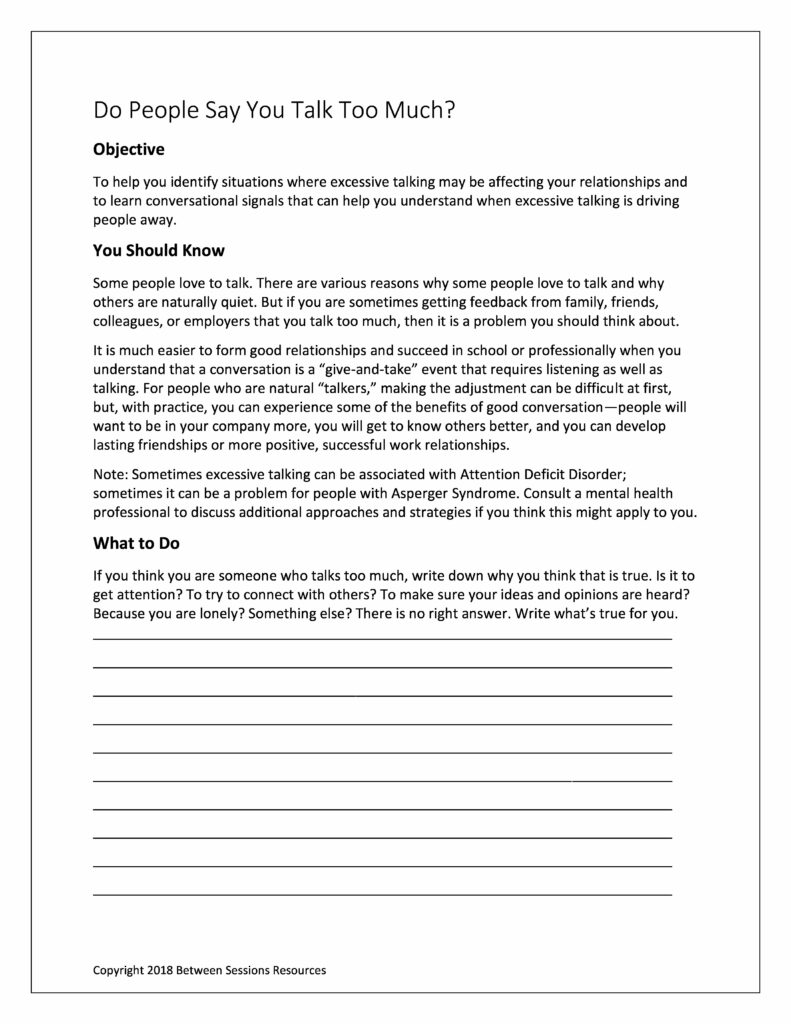Studies tell us that when professionals prescribe therapeutic homework, clients report significantly better outcomes. Our worksheets are derived from evidence-based therapies, and they are designed by experienced professionals. Use the navigation links on the left of this page to view tools in a specific category. Or use the search box at the top of this page to find the exact tool you are looking for.
To modify the tools, click the ‘Send to Client’ button by each tool to open the Psychology Forms Filler. You can then edit the tool as you see fit and either print it out or send it to a client to be filled out online. Click here for a tutorial on using the Psychology Forms Filler.
If you can’t find what you are looking for on this site, please let us know by
clicking here and our team of writers, graphic artists, and therapists will custom-design it for you.
This worksheet is designed to help people identify situations where excessive talking may be affecting their relationships and to help them learn conversational signals that can aid in more appropriate give and take conversations. (ADHD, Asperger Syndrome, relationships, social skills, 0219)
This worksheet is designed to help people talk about their sexual needs and desires with a partner, rather than keeping them secret. (couples, communication, intimacy, sexuality, 0219)
This worksheet is designed to help people who are feeling depressed and even suicidal reach out to others and engage in social activities. (depression, prevention, social isolation, 0219)
This worksheet is designed to help who have experienced a trauma develop ways to help them cope with distressing thoughts and feelings. (PTSD, anxiety, DBT, treatment, 0219)
This worksheet is designed to help people determine if hair-pulling is a serious problem. The worksheet also teaches a behavioral technique commonly used to treat this problem. (anxiety, trichotillomania, habits, 0219)
This worksheet can be used with people who have social anxiety to help them overcome symptoms that may keep them from dating. The worksheet uses the principles of exposure therapy to help people address this problem. (0119)
This worksheet is designed to help people determine if they have a problem with hoarding and to learn initial strategies for cutting back on their need to acquire and collect objects, (0119)
This worksheet is designed to teach people the DBT skill of “opposite action” where you practice the opposite behavior that you would normally use when dealing with powerful emotions. (emotional regulation, 0119)
This worksheet is designed to help you determine the attachment style (secure, anxious, or avoidant) you bring to your important relationships. Suggestions are given to help people who are anxious or avoidant in their relationships. (0119)
This worksheet is designed to help people understand why fire setting of any kind is a serious problem and what they can do solve this problem. It includes a Four-Step Technique to help people control their impulses. (pyromania, impulsivity, 0119)










